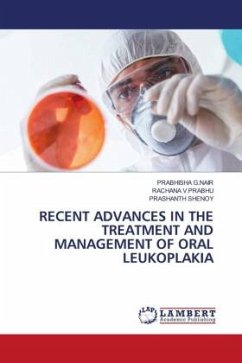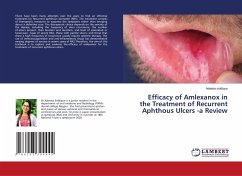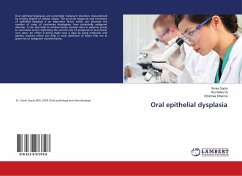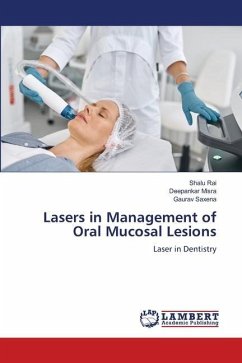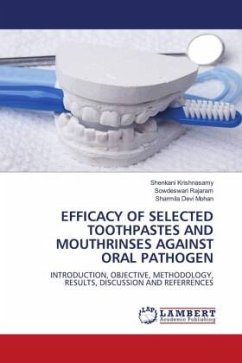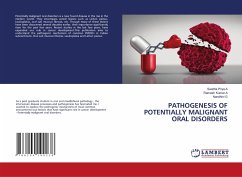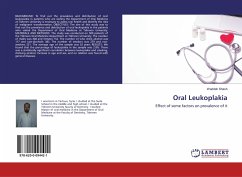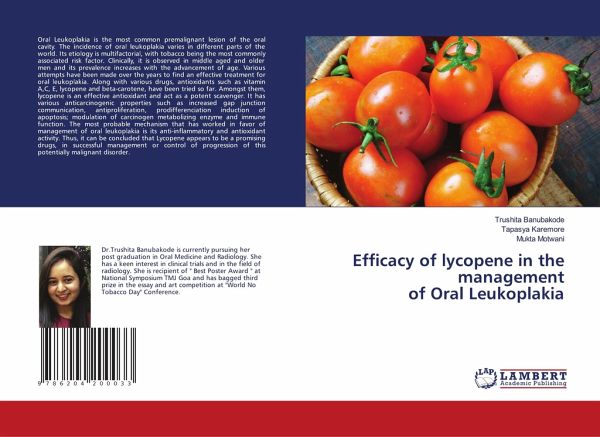
Efficacy of lycopene in the management of Oral Leukoplakia
Versandkostenfrei!
Versandfertig in 6-10 Tagen
36,99 €
inkl. MwSt.

PAYBACK Punkte
18 °P sammeln!
Oral Leukoplakia is the most common premalignant lesion of the oral cavity. The incidence of oral leukoplakia varies in different parts of the world. Its etiology is multifactorial, with tobacco being the most commonly associated risk factor. Clinically, it is observed in middle aged and older men and its prevalence increases with the advancement of age. Various attempts have been made over the years to find an effective treatment for oral leukoplakia. Along with various drugs, antioxidants such as vitamin A,C, E, lycopene and beta-carotene, have been tried so far. Amongst them, lycopene is an...
Oral Leukoplakia is the most common premalignant lesion of the oral cavity. The incidence of oral leukoplakia varies in different parts of the world. Its etiology is multifactorial, with tobacco being the most commonly associated risk factor. Clinically, it is observed in middle aged and older men and its prevalence increases with the advancement of age. Various attempts have been made over the years to find an effective treatment for oral leukoplakia. Along with various drugs, antioxidants such as vitamin A,C, E, lycopene and beta-carotene, have been tried so far. Amongst them, lycopene is an effective antioxidant and act as a potent scavenger. It has various anticarcinogenic properties such as increased gap junction communication, antiproliferation, prodifferenciation induction of apoptosis; modulation of carcinogen metabolizing enzyme and immune function. The most probable mechanism that has worked in favor of management of oral leukoplakia is its anti-inflammatory and antioxidant activity. Thus, it can be concluded that Lycopene appears to be a promising drugs, in successful management or control of progression of this potentially malignant disorder.



